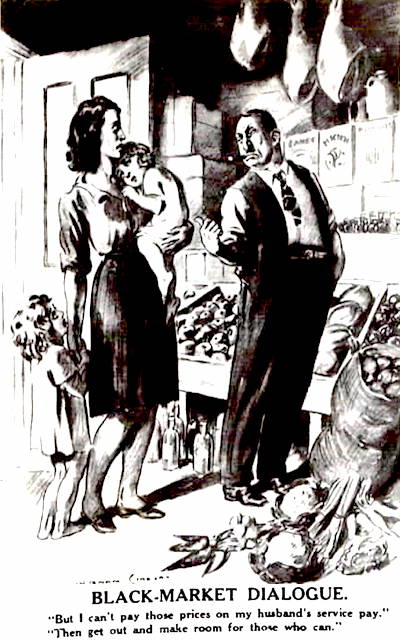Search
Recent comments
- stenography.....
3 hours 7 min ago - black....
3 hours 5 min ago - concessions.....
4 hours 7 min ago - starmerring....
8 hours 12 min ago - unreal estates....
11 hours 58 min ago - nuke tests....
12 hours 2 min ago - negotiations....
12 hours 4 min ago - struth....
1 day 1 hour ago - earth....
1 day 2 hours ago - sordid....
1 day 2 hours ago
Democracy Links
Member's Off-site Blogs
gouging in times of war... on covid-19... nothing new...
 gouging
gougingRetailers charging “beyond outrageous” prices for rapid antigen tests are being referred to the federal police for investigation, as supply issues continue to hamper Australia’s testing regime.
The referrals were disclosed by the Australian Competition and Consumer Commission as union leaders accused the federal government of putting workers “in harm’s way” by failing to provide free and accessible rapid antigen tests.
Union leaders said after an “emergency” meeting on Monday that free rapid antigen tests were needed for the whole community, not just essential workers, and they vowed to write to all employers urging them to protect employees.
The chair of the ACCC, Rod Sims, said on Monday the consumer watchdog had received many reports of price gouging, which is now illegal under new laws that prevent profit margins of more than 20% on tests.
With reports of retailers charging more than $30 for a single hard-to-find rapid testing kit, Sims said the regulator was preparing to take action on the “beyond outrageous” price markups.
Read more:
https://www.theguardian.com/australia-news/2022/jan/17/outrageous-retailers-referred-to-afp-for-price-gouging-rapid-antigen-tests
Back in 2020:
Act could have prevented chaos: StoweThe market pressures caused by COVID-19 have taken consumers on a roller-coaster ride in 2020.
At times, basic items like toilet paper, hand sanitiser and flour have been scarce or sold at highly inflated prices.
Fights have broken out in shopping aisles, prompting the introduction of rationing.
Medical supplies have also been affected, with one company charging $786 for a single box of face masks.
Some of these chaotic scenes and shady practices could potentially have been avoided with a little-known piece of legislation, according to former NSW Fair Trading Commissioner Rod Stowe.
The Prices Regulation Act of 1948 gave the NSW Government the power to set a maximum price for a designated product or service.
The measure was introduced to limit the cost of items like bread and milk after World War II, but it was considered "archaic" and repealed by the Berejiklian Government last year.
In a statement, the Government said many of the Act's provisions were already covered through other legislation, but Mr Stowe strongly disagreed.
"This was important legislation that ensured there was a mechanism that could protect consumers from exploitative prices," he told ABC Radio Sydney's Breakfast program.
While Government intervention in the marketplace would be an extreme scenario, Mr Stowe said the threat of setting a price could be sufficient.
"You could actually warn people involved in these practices that the Government could move to set a maximum price," he said.
"You had a pretty big stick to wave at people that we don't have now."
The legislation also allowed the Government to establish an inquiry into pricing that could be targeted at a particular region or locality.
"Back in the 1990s, we were using it to deal with scalping events, like the Rugby League Grand Final," Mr Stowe said.
Read more:
Cartoon at top : The Bulletin, 1943, Norman Lindsay...
FREE JULIAN ASSANGE NOW !!!!!!!!!!!!!!!!
- By Gus Leonisky at 18 Jan 2022 - 9:38am
- Gus Leonisky's blog
- Login or register to post comments
not bound by the rules of evidence...
The Prices Regulation Act of 1948 was working well until it was decided by the LIBERAL (CONservative) government to replace it with the " Fair Trading Act 1987 No 68" just to confuse everyone and encourage busters and gougers to make a living...
The new legislation is of course like all legislation full of legalese. You can read it here: https://legislation.nsw.gov.au/view/whole/html/repealed/current/act-1948-026
I will draw your atention to this paragraph:
-------------
8F Procedure at inquiries
(1) An inquiry shall be held in public and, subject to this section:
(a) evidence in the inquiry shall be taken in public on oath or affirmation, and
(b) submissions in the inquiry shall be made in public.
(2) If any witness objects to giving any evidence in public that the Tribunal is satisfied is of a confidential nature, the Tribunal may take that evidence in private if it considers it desirable to do so.
(3) In an inquiry, the Tribunal may, if it thinks fit, permit a person appearing as a witness at the inquiry to give evidence by tendering, and verifying by oath or affirmation, a written statement and, where evidence is so given, the Tribunal shall make available to the public in such manner as the Tribunal thinks fit the contents of the statement other than any matter that the person who gave the evidence objects to being made public and that the Tribunal is satisfied is of a confidential nature.
(4) In an inquiry, the Tribunal may, if it thinks fit, require or permit a party to the inquiry desiring to make submissions to the Tribunal to make those submissions in writing and, where submissions are so made, the Tribunal shall make available to the public in such manner as it thinks fit the contents of the submissions.
(5) The Tribunal is not bound by the rules of evidence.
FREE JULIAN ASSANGE NOW!!!!!!!!!